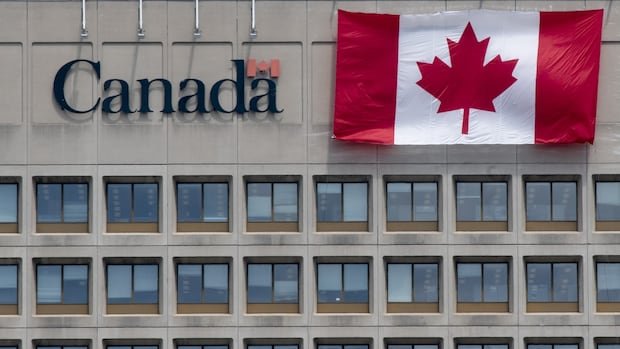Four of Canada’s largest banks have left the UN-backed Net-Zero Banking Alliance, which aims to accelerate climate action among financial institutions.
Banks including BMO, National Bank, TD Bank Group and CIBC confirmed on Friday that they were no longer members.
The withdrawals from the alliance follow the departure of the six largest US banks in recent weeks, ahead of Donald Trump’s presidential inauguration.
Financial institutions are pushing back following sustained criticism from US Republicans over various climate alliances and the very concept of taking environmental risks into account in their business operations.
BlackRock, the world’s largest asset manager, abandoned the Net Zero Asset Managers Initiative earlier this month in a move that prompted the group to suspend activities and launch a review of the initiative, citing “recent developments in the US.” “.
The Canadian banks did not mention issues in the U.S. about why they were leaving the alliance, but in statements they said they can continue their climate work without the group’s help.
BMO spokesperson Jeff Roman said the bank is fully committed to its climate strategy and supporting its customers in the transition to net zero.
“We have strong internal capabilities to implement relevant international standards, supporting our climate strategy and meeting regulatory requirements,” he said.
Take a pragmatic approach
The National Bank said it abandoned the alliance because it streamlines the way it reports its plans and progress. He said he would take a pragmatic approach and work with businesses across sectors to decarbonise.
TD said it has what it needs to advance its strategy and advise its clients as they adapt their businesses.
CIBC said the alliance was formed when the global industry was stepping up its climate efforts, but that the space has evolved enough that it can act on its own.
“Having made significant progress alongside our clients in these areas, we are now well positioned to drive this work outside the formal NZBA structure,” CIBC spokesperson Tom Wallis said.
The current19:09Why big banks are pulling out of climate initiatives
A growing number of banks and asset managers are withdrawing from climate initiatives, designed to guide investment practices towards net zero goals. What is driving the exodus and what will it mean for efforts to curb climate change?
In 2021, at the UN climate summit in Glasgow, more than 160 financial institutions signed the Glasgow Financial Alliance for Net Zero (GFANZ). The Net-Zero Banking Alliance is the industry-led banking element of GFANZ.
As the UN envoy for climate action and finance, charged with finding capital for the transition to a net-zero economy, Mark Carney, former governor of the Bank of Canada and now candidate for Liberal leader, praised GFANZ and told the summit that its members celebrated. commitments that will “reshape their business models to finance the sustainable transformations of our economies.”
The banks’ withdrawal from the alliance shows the need for the government to intervene, said Keith Stewart, an energy strategist at Greenpeace.
“To call this a cowardly act of cowardice on climate would be too kind,” Stewart said in a statement.
“However, it shows that if we want to prevent more communities from being burned or flooded in climate-driven disasters, taking huge amounts of money out of fossil fuels and into climate solutions, then we need governments to regulate banks in the same way.” “They do it with chimneys and exhaust pipes.”
At a conference on January 7, RBC CEO Dave McKay said the alliance was changing and questioned whether it was the right mechanism to reduce emissions.
The bank was still listed as a member early Saturday, as were Scotiabank and credit unions Vancity and Coast Capital.








